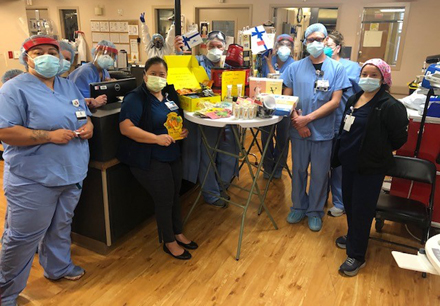[btn]By Hillary Frank, DVM, Dipl. ABVP (avian)[/btn]
Microchipping has become a very popular and safe way to permanently identify a pet. Millions of dogs and cats are taken to animal shelters as strays each year—but only about 15 percent of dogs and 2 percent of cats who end up in shelters without an ID tag or microchip are reunited with their owners.
Even the most responsible pet owners can be unexpectedly separated from their pets. Local animal rescue centers or animal hospitals are able to scan your pet for the chip and contact you quickly.
Microchips are a permanent, easy way to identify lost pets and help reunite them with their owners. They can also assist where the ownership of an animal is in dispute. The microchip is a tiny computer chip, about the size of a grain of rice, programmed with an identification number. The chip is enclosed in biocompatible glass and is small enough to fit into a hypodermic needle. An animal can be identified lifelong with this one-of-a-kind number using a hand held scanner.
Puppies and kittens can be chipped as early as 6 weeks of age. The same size microchip and needle are used in pets even smaller than puppies and toy breeds, including kittens, birds, tortoises, and even fish.
Microchips can’t be lost, altered, or destroyed. A special scanner is used to send a radio signal to the chip to read the identification number. The pet feels nothing when the scanner is placed over it and the number is displayed on the scanner. The person reading the scanner can contact a national registry, such as the one listed on our website, to find the pet owner.
Animal shelters and veterinarians are finding chips in more and more lost pets. They are aware of the national registries and routinely contact them to obtain owner information regarding the pet. They then contact owners to advise them their pet has been found.
If a pet is lost and has a microchip, there is a good chance it will be reunited with its owner, according to a recent study published in the Journal of American Veterinary Medicine. Fifty-three shelters in 23 states participated in a study, which revealed that shelter officials were able to find the owners of lost microchipped pets in nearly three out of four cases. In the study, the biggest reason owners couldn’t be found was because of an incorrect or disconnected phone number in the registration database. It is very important to update your information whenever your address or phone number changes.
Microchipped cats were returned to owners 20 times more often than non-microchipped cats. Dogs that were microchipped were 2.5 times more likely to be returned to their owners than non-microchipped dogs.
A missing pet can be terribly distressing, but your odds of seeing your pet again can increase with proper identification. We always recommend a safety collar and tag for both cats and dogs, but collars can be lost or slipped, and a microchip is the safest way to ensure you can be reunited with your pet.









































